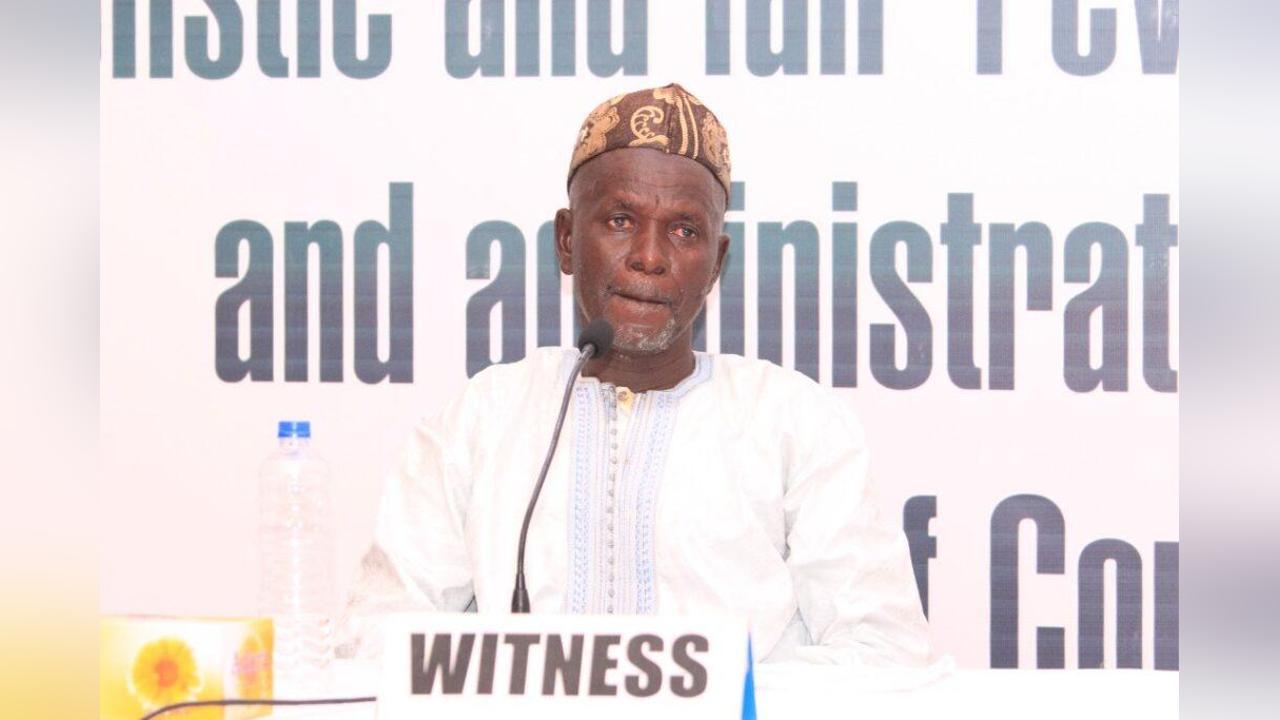Africa-Press – Gambia. Malamin I.L. Bojang, the former chairman of the Kerewan Area Council, appeared again before the Local Government Commission of Inquiry on Wednesday to answer questions regarding the purchase of 690 bags of 25 kg rice from Babucarr Babou, amounting to five hundred thousand dalasis.
When questioned about why the procurement bypassed the proper process, Bojang explained that the purchase went through the finance committee instead of the contracts committee. Lead Counsel Gomez pointed out that the finance committee is not responsible for procurement matters, to which Bojang acknowledged his awareness.
Counsel Gomez pressed further: “So why did it not go to the contracts committee through procurement?” Bojang admitted it was an oversight.
The counsel also highlighted that the contract was single-sourced to Babucarr Babou and asked for justification. Bojang responded that it was considered an emergency purchase to meet urgent community needs.
“What they have said is that it was an emergency and the people are in need,” Bojang said, admitting that while this was the reason given, it did not constitute a legal justification.
Counsel Gomez emphasized that all contracts must go through the contracts committee, and if single-source procurements are authorized, reports should be submitted to the Public Procurement Authority (GPPA). Bojang confirmed he was aware of this procedure.
The counsel questioned whether the chairmen and mayors supervised the CEO’s compliance with submitting procurement activities to the GPPA. “Even the chairmen and mayors should supervise to see at the end of the month if the CEO is complying with the regulations to submit the procurement activities of the month to GPPA. Was that done?” He asked.
Bojang replied that this supervision was not done, explaining that CEOs often emphasize their role as the spending officer, which hinders proper procurement processes. “That means he is the one to buy items and bring them to the council,” he noted.
Counsel Gomez, referencing Bojang’s master’s degree from Ghana, challenged his apparent lack of attention to the legal requirements, suggesting that with his qualifications, he should have ensured compliance. “You told us you have a master’s degree in Ghana. I don’t mean to be demeaning. I am just trying to say that you were also relaxed in not finding out what the law is.” Gomez observed.
Bojang agreed, acknowledging that as chairman, he should have played a more active role in supervising procurement processes.
Counsel Gomez reminded him that while the CEO is indeed the spending officer, the chairman has an oversight role and is responsible for supervising the CEO. He further pointed out that the law requires the CEO to consult and seek clearance from the chairman in certain instances.
“Oh, you are right,” Bojang acknowledged.
Counsel Gomez questioned the pricing of the 25kg bags of rice, raising concerns over the unusual figure.
“You bought a bag of rice for Seven Hundred and Twenty-four Dalasi, Six Butut. You and I know that in the Gambia, there is no bag of rice that will cost an amount with a point. It is always a round figure,” Gomez remarked.
In response, former Chairman Bojang explained that the quoted amount included transportation costs, adding that, to the best of his recollection, the actual purchase price per bag was D625. However, Counsel Gomez countered, pointing out that the supplier, Babucarr, had already testified before the Commission, stating he charged the council D725 per 25kg bag. Gomez further noted that this was the same quantity and type of rice Mansakonko Area Council purchased for just D650.
Bojang responded by suggesting that the Chief Executive Officer might be better positioned to explain the discrepancy. He admitted to the Commission that he was not involved in the council’s procurement processes but conceded that he should have exercised oversight.
For More News And Analysis About Gambia Follow Africa-Press






